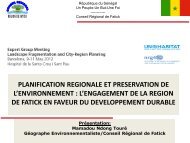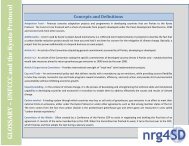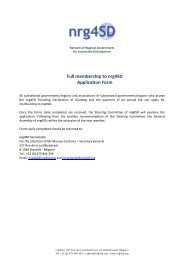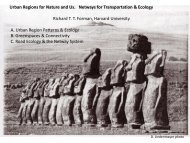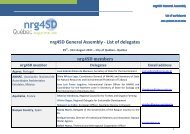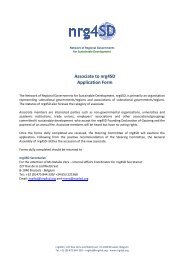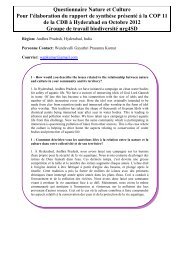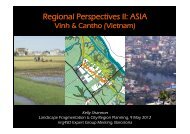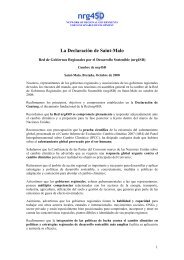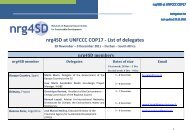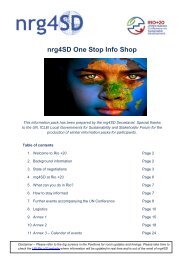Post 2015 Development Agenda: Guidelines for Country ... - nrg4SD
Post 2015 Development Agenda: Guidelines for Country ... - nrg4SD
Post 2015 Development Agenda: Guidelines for Country ... - nrg4SD
- No tags were found...
Create successful ePaper yourself
Turn your PDF publications into a flip-book with our unique Google optimized e-Paper software.
3. The role of the UN at the country levelUN <strong>Country</strong> Teams (UNCT) have extensive experience in convening different developmentstakeholders and providing relevant knowledge to identify development challenges,opportunities and solutions with a bottom-up approach rationale. UNCTs, under the leadershipand guidance of the UN Resident Coordinator (UNRC), are there<strong>for</strong>e well placed to support thenational consultations. The direction of the process will there<strong>for</strong>e be the overallresponsibility of the UN Resident Coordinator, who should provide the strategic guidance inorder to ensure the participation and inputs of members of the UN System, UNCT and alldifferent stakeholders. By April 2012, 50 countries <strong>for</strong> inclusive national consultations willhave been identified by the Chair of the UNDG in consultation with UN Resident Coordinators.toolsAnnex A: Criteria <strong>for</strong> country selection and list of countries <strong>for</strong> thepost-<strong>2015</strong> consultations4. The <strong>Guidelines</strong>The objective of these <strong>Guidelines</strong> is to support UNCTs, under the leadership of the UNRC, infacilitating the consultation process. They are based on the understanding that contexts fromcountry to country will vary greatly and RCs will require flexibility in adapting the process to thesituation on the ground.To this end, the <strong>Guidelines</strong> intend to:clarify what resources are available (section I);offer guidance on process (II), content (III) and documentation of the consultations (IV);outline what deliverables are expected at the end of the consultation process (V).Annexed to the <strong>Guidelines</strong> is a collection of useful resources and tools such as checklists andtemplates as well as other in<strong>for</strong>mation that will help to plan and implement the consultationsand to consolidate their findings. (See figure 1 <strong>for</strong> a graphic overview of how the <strong>Guidelines</strong> havebeen conceptualized.)It is important to emphasize that the content in the guidelines should not be interpreted asprescriptive. <strong>Country</strong> contexts vary considerably, including the relations between the UN andgovernment, and between state and non-state actors. The guidelines should also not be seenas providing comprehensive technical guidance on participatory research methods. Instead,they offer a point of departure <strong>for</strong> determining context-appropriate inclusive consultationprocesses, preferably leading to sustained mechanisms <strong>for</strong> national dialogues and consultation.There<strong>for</strong>e, rather than being deep research exercise, it is hoped that the national dialogues canprovide an anchor <strong>for</strong> deeper and broader participatory processes led by partners, including incivil society and academia.14<strong>Post</strong>-<strong>2015</strong> <strong>Development</strong> <strong>Agenda</strong> Process: Guideline <strong>for</strong> Consultations



